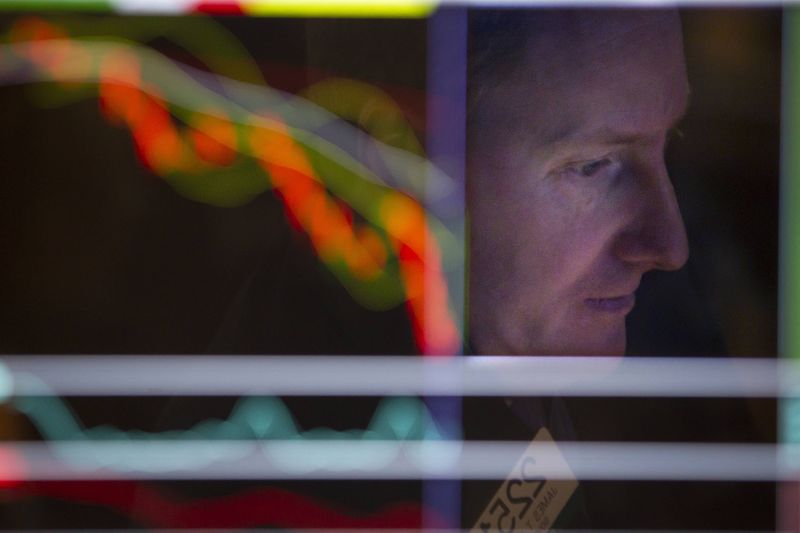(Repeats for additional subscribers)
By Ransdell Pierson and Bill Berkrot
NEW YORK, Nov 6 (Reuters) - Brenton Saunders, the whiz-kid
pharmaceutical executive with a reputation for being wary of the
costs of early-stage drug development, says he's open to new
ideas from outside and is now warming up to investing in drug
discovery if it makes sense for his company.
That could ease concern that if Allergan (N:AGN_pa) Inc's AGN.N
"friendly" talks with Pfizer Inc (N:PFE) PFE.N end in a merger, the
combined company may not remain one of the world's largest
inventors of new medicines.
"I practice a very open minded management structure and
learn new things all the time that change my opinion," Saunders,
45, said in a phone interview with Reuters from an Allergan
discovery lab. "For instance, when Actavis (N:AGN) and Allergan merged,
we didn't have any discovery capabilities, but we assessed
Allergan's discovery capabilities in ophthalmology and aesthetic
medicine and recognize they added a lot of value. Not only have
we kept them; we've invested in them."
While sources close to the ongoing negotiations stress that
no decision on Saunders' role has been taken yet, the
possibility of Pfizer being led or influenced by an executive
who has not overseen the full development, from discovery to
approval, of a single drug raises concerns among many industry
insiders.
Pfizer refused to comment on Saunders' role in any potential
deal with Allergan. Pfizer board member Dennis Ausiello, chief
of medicine at Massachusetts General Hospital in Boston, said in
an interview that Pfizer would not be Pfizer without drug
discovery.
"Innovation is at the heart and core of the business, and
discovery is at the heart and core of innovation," Ausiello
said, also acknowledging that acquisitions also have an
important role to play in Pfizer's drug development strategy.
The New York-based company sees one or more additional new
product launches each year through 2022 and plans to have 10 new
immuno-oncology drugs in clinical testing by next year.
Saunders has said that drug discovery is too inherently
risky and costly, and called the idea that big pharma players
need to do it a "fallacy." He prefers to license or acquire
medicines that have already been shepherded through the riskiest
stages of their development by other companies.
That's in contrast to Ian Read, Pfizer's 62-year-old CEO.
When Read took over Pfizer in 2010, he declared reigniting a
moribund research engine that had produced no important new
medicines in a decade as one of his most important tasks.
Since then, Read can claim credit for the regulatory
approval of 10 new medicines, including breast cancer drug
Ibrance, which analysts forecast will eventually generate $5
billion a year, and Trumenba, a meningitis vaccine, both
products of Pfizer labs.
Some Pfizer insiders don't see Saunders as a good match for
the 166-year-old company, whose expected revenue of $48 billion
this year is about three times as much as Allergan's.
"Saunders is not going to come to Pfizer and get religion on
the need for drug discovery. I would doubt that would happen,"
John Lamattina, who served as Pfizer's research chief between
2003 and 2007, said in an interview.
Saunders declined to discuss any future role he might
assume. He said he believed he would in fact be able to fit in
with a company that has discovery culture.
"I believe as an executive of any company, it's your job to
invest in things you do better than your competition and
reassess things you don't do better," he said in the interview.
TOP-NOTCH EXPERTISE
In his meteoric career, Saunders has lead Bausch & Lomb,
Forest Laboratories and Actavis, which took the Allergan name
after acquiring the Botox maker this year, all in the past five
years. While his faith in drug discovery credentials may be
questioned, he is highly regarded among his peers as a CEO with
top-notch operational expertise.
A portage of industry veteran Fred Hassan, who fixed
Pharmacia and sold it to Pfizer, Saunders is credited with
helping turn around struggling Schering-Plough and then leading
its integration with Merck (N:MRK) & Co MRK.N .
When Actavis acquired Forest, Actavis CEO Paul Bisaro
replaced himself with Saunders, who had previously sold Bausch &
Lomb to Valeant Pharmaceuticals International Inc (N:VRX) VRX.TO . In a
recent interview, Bisaro called Saunders the best young CEO in
the industry.
"It just didn't make any sense to let him get away," said
Bisaro, who remained as executive chairman.
To be sure, Saunders has also shown a determination to move
away from commoditized offerings. Last July, just four month
after Actavis acquired Allergan, Saunders agreed to sell
Allergan's generic drugs portfolio to Teva Pharmaceutical (N:TEVA)
Industries Ltd TEVA.TA for $40.5 billion.
Despite their different backgrounds, Read may see Saunders'
skill set as complementary to his, some industry experts said.
Raghuram Selvaraju, healthcare analyst with Rodman & Renshaw,
said he believes Read would even be willing to cede his title to
Saunders and become executive chairman.
"Ian's main concern is to get lower taxes for Pfizer through
an inversion. He would rather be able to say he pulled this tax
inversion off, and now I'm going to let Brent crack the whip and
wield the axe," Selvaraju said, referring to the many job cuts
that typically follow large mergers.
Saunders said he has known Read for many years, from the
time they both sat on the board of PhRMA, the largest U.S. trade
group for the pharmaceutical industry. He declined to comment
further on his relationship with him in light of the ongoing
deal talks.
